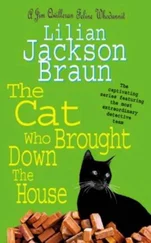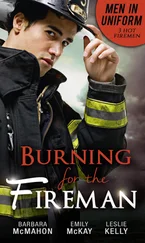“Take Me to the River.”
Yes, over and over. It is the happiest memory of my life. That’s the time in my life when I figured out who I was going to be. When I met my first wife. When I became myself. Driving, rolling along, windows down, listening to that song. That and “Thunder Road.” My two favorite songs.
“Thunder Road” might fit better into the show. Unfortunately, it’s not Talking Heads.
The producer smiled as he slid back his card. I know, he said. You can put away the light, he called out.
Back in the darkness he explained, So you can understand why this means so much to me.
I do.
So you’ll try to work it into the show?
We’ll think about it, all of us. But this isn’t an apartment renovation or a custom automobile interior. It isn’t just some luxury product.
Ian knew he should stop himself but he was too tired.
The producer raised his eyebrows and inhaled.
But you know that, Ian recovered.
Yes, he said. I know that. But we’re talking about entertainment here. It’s supposed to please the audience.
It’s a creative endeavor.
It doesn’t exist without the audience.
Well, let’s call it a collaboration then, among the artists, the work of art, and the audience.
Okay, I like that. Collaboration.
The producer stood up. The light was back on him, this time a purplish glow like a techno aura. So, you’ll think about it? he said.
Yes, Ian said, thinking that he, Ian, had never figured out who he was going to be. Did that happen? Did people do that?
Yes, he repeated. Absolutely.
—
In the theater after everyone leaves, the darkness is a deep shade of red. Maybe it’s from the red velvet seats. Maybe the glint of gold paint on the swirling ornamentation of the boxes and balconies gives off a reddish glow. There’s a smell of diffused sweat and old fabrics and wood, musky like incense. The silence is oppressive — the musicians, the actors, the dancers, all gone — and you can almost hear a whispering echo of their voices but then you realize you can’t and that’s when the lack of noise becomes a sound unto itself. Ian sits fifth row center in the dark with his feet up on the seat in front of him, just the way he sat that first time Poppy showed up for her internship. He goes straight in his mind to Poppy as soon as the lights are down. He imagines her sleeping, sprawled, her arms flung up around her head. Just a kid. He would like to wake her up, talk to her, ask her how she is, have a conversation. He doesn’t really talk to anyone anymore except for the people involved in the show. Or no one outside that circle talks to him. He has noticed a distant coldness from Jonathan, and from Miranda and Patrizia too when he last saw them. Even Alix has been preoccupied, too busy. Perhaps he was imagining the chill from Patrizia and Miranda and Alix but he knows that Jonathan has cut him off, knows that Jonathan was the one who found out, from the housekeeper who’d become suspicious and shown him the receipts, signed by Ian, Poppy’s mementos. He knows that Jonathan told Steve. And he doesn’t blame him. He also doesn’t actually miss him. But he misses Poppy. He thinks about Poppy, would like to see her and make sure she is okay. He worries about her, feels absurd and egotistical for worrying, as if his absence means anything to her, then realizes it probably does, and then senses a new relationship forming to her, and he allows himself to care and wonder. She’s probably out tonight with friends, he thinks, the others will be drinking although, since Poppy doesn’t like to drink, she’ll be having fun in a respectably debauched teenage way. Nothing too dangerous. Nothing too scary. But still he worries about her and wants her to be happy, suspects that she is not. I am not happy, he thinks. And I can’t be, he realizes, if she is not happy. I can never have that anymore, any happiness without her happiness. He thinks he is beginning to see some future for himself. He thinks he can safely say that there is someone in the world whom he cares more about than himself. Now he feels that he and Poppy are inseparable, in the sense that his life seems bound up with hers, that he is living his life for her. Not to be with her, but to care for her. He realizes that he is more alone than ever now, that he has left his old self behind, and that he is going, in some way, to put her life ahead of his. He doesn’t know how exactly this will happen. But that’s what he sees in the darkness of the theater, beyond the present, beyond the moment, past the stage. Into the hot white lights and directly through them, back out into the world.
—
The same distance separates the director and the teenage girl from the other people in their worlds. Both isolated, alone, tragic characters on an amphitheater stage, enacting some doomed, dishonorable story for the audience, as innocent as sacrificial goats, unaware of what the gods, DNA, destiny, the universal drive toward death, have in store for them. Ian feels himself gaining insight, reflecting, understanding. But he cannot yet fully grasp the fear he touches when he approaches the truth of what has happened. Is it a purely scientific problem or a moral one? An accident of nature or an intentional, ironic twist of fate?
That his mind keeps circling, circling around the problem, tells us something about him, tells him something about himself. He will never give her up, never abandon her. His absurd perseverance has in it valor, humanity, some grace.
—
She finds it a little strange that no one is home, but Jasper shrugs and says, Why? It’s the middle of the day. They’re at work. As if it should be obvious to her. She understands that it should be. It’s a small place. Dark carpeting. One wall of the living room is painted a charcoal and the other walls are covered with bookshelves. Objects everywhere, on tables, cabinets, a jumble of decors, only the disorderly logic of things accumulated and nowhere to put them. He leads her directly to his room and shuts the door. Then he locks it. She is still adjusting, looking around at his electronics, his books, the bed. It doesn’t register that he has locked the door. Then he fires up his enormous computer, it’s huge, some massive gaming console, and unzips his sweatshirt. A sound like a missile whooshing overhead and on the screen appear images of people doing things she has never seen or heard of before. Violent, deranged things. At first, it’s incomprehensible, and then, suddenly, from every satellite in space comes radiating toward her an unadulterated fear. She does not exist except as fear. She has known pain and regret and other innumerable miseries but she has never felt this exclusive fear.
Hey, she manages to speak up, Jasper, whoa.
Jasper? he says.
That’s when she remembers that she has given him the name Jasper, that she doesn’t even know his real name.
As he pulls down the shades he says: I don’t know who the fuck Jasper is, but there’s no Jasper here.
—
It was a mistake, a sickening error, and she was living it while in her mind existing someplace else. She could be in two places and no one had ever noticed; this fact had been concealed from her until now. She was playing dead. Or maybe she was dead. Her body was in the shaded room but her being was in Felix’s room, where it had been the other day, chatting with him about his latest philosophical excursions. Her limbs were contorted and her flesh abused, but her thoughts were with Felix, sweet Felix. He is telling her about Marcus Aurelius. I love ancient Rome, he’s saying, and he describes for her Marcus Aurelius’s Meditations. And now Felix seems to have transported both of them to the Forum, to the Colosseum, orangey-pink light slanting through classical arches. Listen to this, he says, taking the small book in his small hands. I don’t totally understand it but it sounds so beautiful, it’s something Marcus Aurelius says in the middle of the book. I think you’ll like it. And he reads: “You may break your heart, but men will still go on as before.” I do like it, Poppy says, out loud, because Not-Jasper is making her say those words, telling her exactly what to say, but what she means is that she likes the line Felix is reading to her. I do like those words, she says in her mind again without saying anything out loud, and I’m glad that you don’t understand them, sweet Felix, but I get it. Believe me, I do.
Читать дальше












